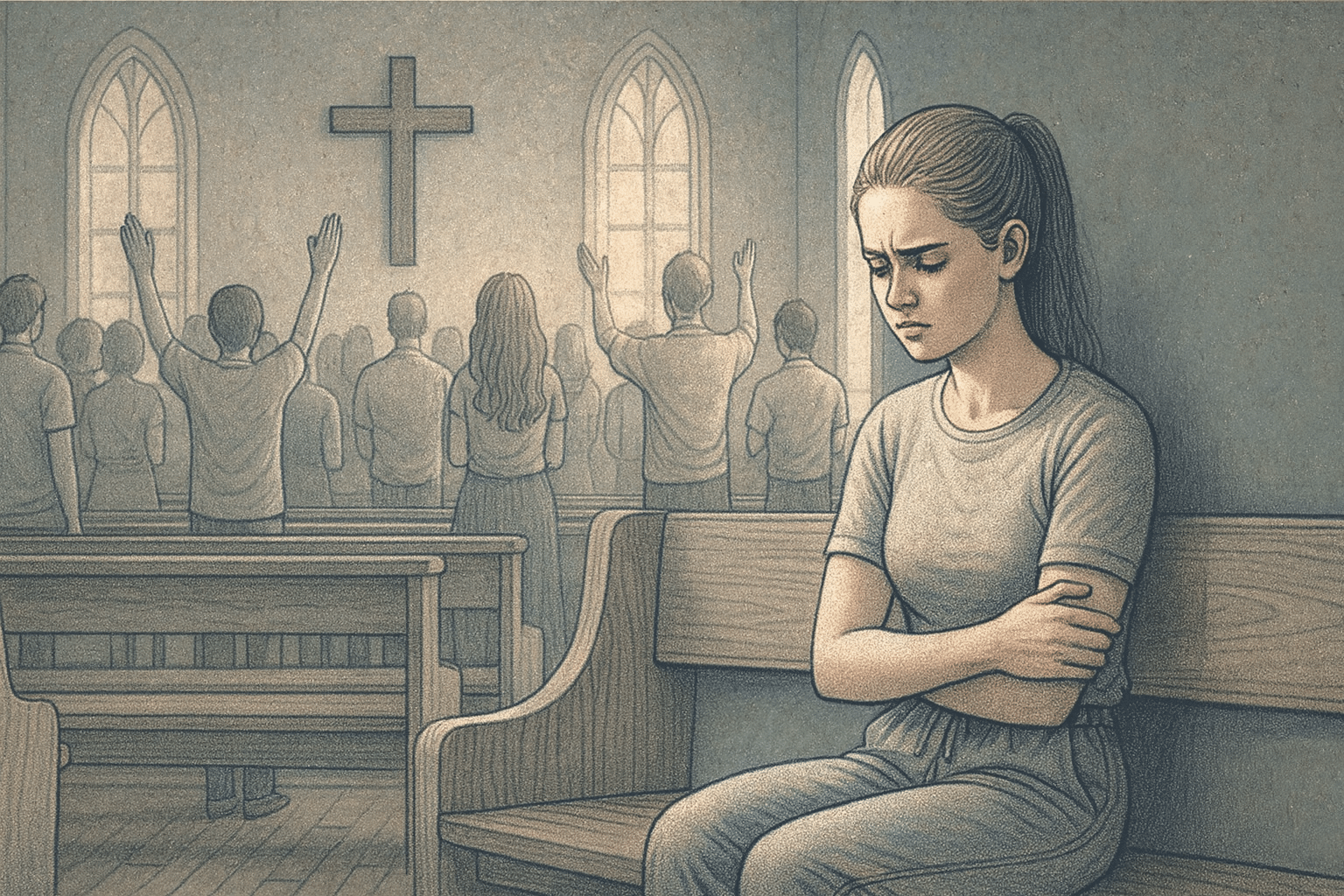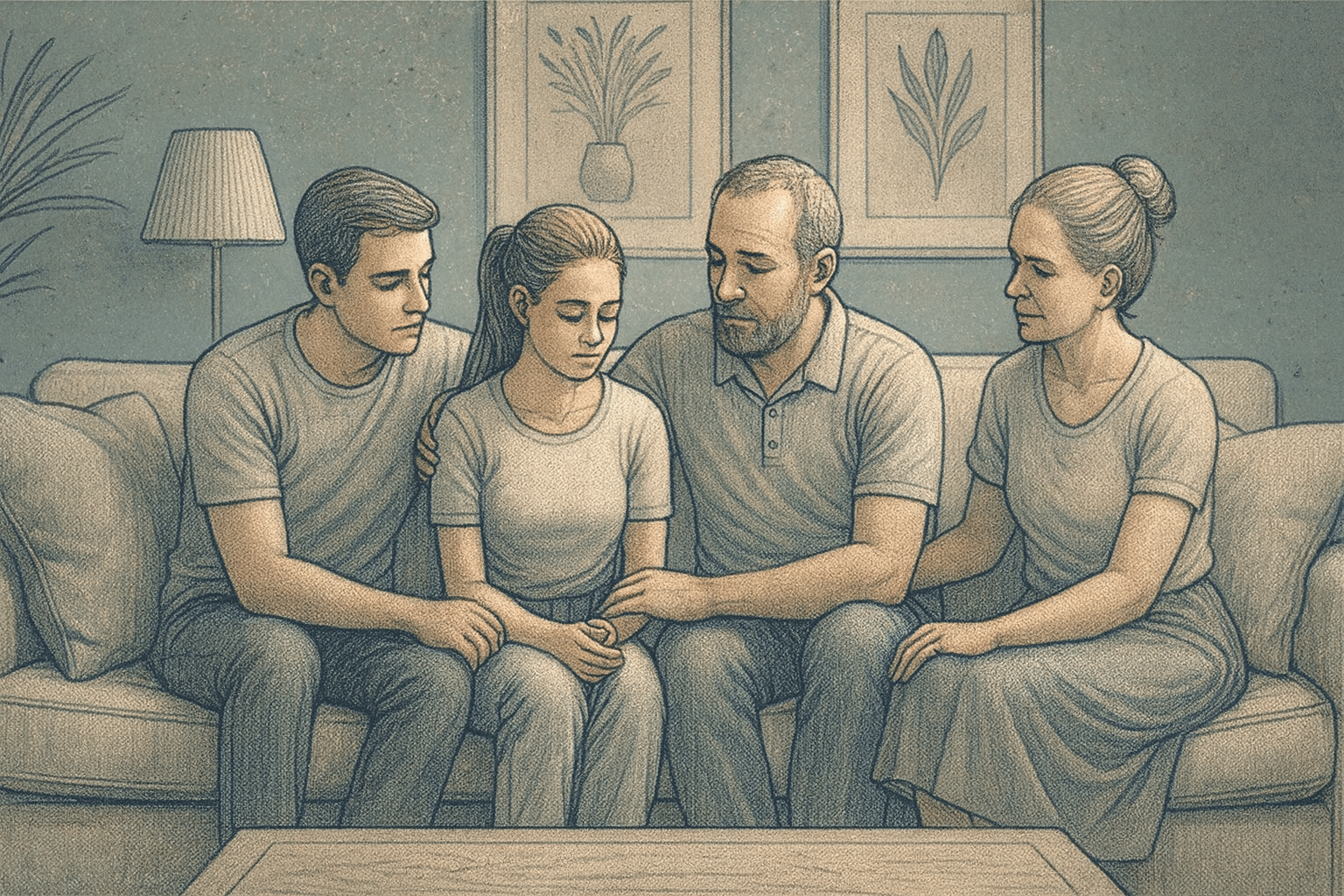Key Takeaways
- Religious delusions differ from healthy faith by being rigid, distressing, and disconnected from shared religious teachings, often involving grandiose or persecutory beliefs about divine communication or special status.
- Common examples include believing oneself to be a religious figure, receiving direct commands from divine sources, or feeling personally persecuted for religious reasons beyond normal discrimination.
- Support involves listening without judgment, avoiding direct confrontation of beliefs, maintaining safety, and gently encouraging professional evaluation when functioning is impaired.
- Treatment typically combines medication, therapy, and culturally sensitive approaches that respect genuine faith while addressing delusional thinking.
- AMFM provides specialized care for complex mental health conditions, offering residential, partial hospitalization, and intensive outpatient programs with experienced teams trained in handling religious and spiritual concerns.
Understanding Religious Delusions vs. Faith
Religious delusions represent a complex intersection where mental health meets spirituality. Unlike healthy religious faith, which provides comfort and community connection, religious delusions are rigid, distressing beliefs that isolate individuals from their support systems and impair daily functioning.
Genuine religious experiences typically align with established teachings within a person’s faith tradition and enhance their well-being. Religious delusions, however, often involve grandiose claims about special divine relationships, receiving unique messages, or believing oneself to be a religious figure. These beliefs persist despite evidence to the contrary and cause significant distress or dysfunction.
The key difference lies in flexibility and impact. Healthy faith adapts to life circumstances and promotes growth, while delusional religious thinking becomes increasingly fixed and destructive to relationships, work, and self-care.
| A Mission For Michael: Expert Mental Health Care Founded in 2010, A Mission For Michael (AMFM) offers specialized mental health care across Southern California, Minnesota, and Virginia. Our accredited facilities provide residential and outpatient programs, utilizing evidence-based therapies such as CBT, DBT, and EMDR. Our dedicated team of licensed professionals ensures every client receives the best care possible, supported by accreditations from The Joint Commission and the California Department of Health Care Services. We are committed to safety and personalized treatment plans. Start your recovery journey with AMFM today! |
Common Types of Religious Delusions
Grandiose religious delusions
This involves believing oneself to be a prophet, messiah, or specially chosen by divine forces. Individuals might claim to receive direct communications from religious figures or believe they have supernatural powers.
Persecutory religious delusions
These kinds of delusions center on feeling targeted by evil forces, believing one is being punished for sins, or thinking that demons or dark spiritual entities are actively working against them. These often involve intense fear and hypervigilance.
Somatic religious delusions
Here, physical sensations mix with religious ideas. A person might feel certain their body is possessed, believe they’re transforming into a holy figure, or think divine forces are behind unexplained physical symptoms.
Nihilistic religious delusions
These center on the belief that spiritual salvation is out of reach, feeling abandoned by divine protection, or destined for eternal damnation. Such beliefs can be especially dangerous, often fueling deep hopelessness and, in severe cases, self-harm.

Religious delusions often isolate individuals from their faith communities, as their beliefs become increasingly rigid and disconnected from shared religious teachings and practices.
Warning Signs to Watch For
Several behavioral changes may indicate that religious beliefs have crossed into delusional territory.
- Increasing isolation from family, friends, and even religious communities often occurs as beliefs become more extreme and personal.
- Dramatic lifestyle changes might include abandoning responsibilities, giving away possessions, believing the world is ending, or making significant life decisions based solely on perceived divine messages.
- Sleep and eating disruptions frequently accompany religious delusions, especially when beliefs involve fasting, vigils, or spiritual warfare.
- Aggressive proselytizing or attempts to convert everyone, combined with anger when others don’t accept their special revelations, can signal problematic thinking.
- Safety concerns arise when delusions involve commands to harm oneself or others, or beliefs about being invulnerable due to divine protection.
Changes in speech patterns, such as speaking in religious language constantly or claiming to channel divine voices, also warrant attention.
How to Help Someone with Religious Delusions
Supporting someone with religious delusions requires a delicate balance between respect and concern.
1. Listen without immediately challenging their beliefs. Arguing rarely changes delusional thinking and often increases distress and isolation. Instead, focus on their emotions: “That sounds frightening,” or “I can see this is important to you.”
2. Maintain safety as the priority. If beliefs involve commands to harm themselves or others, or if they’re engaging in dangerous behaviors believing they’re protected, seek immediate professional help. Don’t hesitate to contact emergency services if there’s imminent risk.
3. Avoid reinforcing delusions while also avoiding direct confrontation. You don’t need to agree with their beliefs, but you can acknowledge their experience: “I haven’t had that experience, but I can see it’s very real for you.”
4. Stay connected despite the challenges. Religious delusions often create shame and isolation. Consistent, non-judgmental contact helps maintain the relationship needed for eventual intervention.
5. Document concerning behaviors objectively. Keep notes about specific incidents, statements, or changes in functioning. This information becomes crucial when seeking a professional evaluation.
6. Consult with religious leaders within their faith tradition when appropriate. Many experienced clergy can distinguish between genuine spiritual experiences and concerning symptoms, and may help bridge the gap to professional treatment.

Family support remains crucial during treatment, as loved ones who maintain connection and avoid judgment create the foundation for recovery and ongoing stability.
When to Seek Professional Help
Professional intervention becomes necessary when religious delusions significantly impair daily functioning, relationships, or safety. Immediate evaluation is needed if the person expresses plans to harm themselves or others based on religious commands, engages in dangerous behaviors believing they’re divinely protected, or shows signs of severe depression or agitation.
Urgent but not emergency situations include inability to work or maintain basic self-care due to religious preoccupations, complete withdrawal from all social relationships, or beliefs that are causing extreme distress and preventing normal activities.
Even when safety isn’t immediately at risk, professional consultation helps families understand the situation better and develop effective support strategies. Many mental health professionals specialize in religious and spiritual issues and can provide culturally sensitive care.
Treatment Approaches for Religious Delusions
Effective treatment for religious delusions typically involves a combination of medication and psychotherapy.
Cognitive Behavioral Therapy
Cognitive Behavioural Therapy (CBT) helps individuals examine their thoughts and develop coping strategies. Specialized approaches like spiritual psychotherapy or religiously integrated treatment work within the person’s faith framework while addressing problematic thinking patterns.
Antipsychotic Medications
Antipsychotics can ease the intensity of delusional thinking, though they seldom erase religious beliefs altogether. The focus is on restoring daily functioning and easing distress, not on completely changing someone’s faith or convictions.
Family Therapy
Family sessions can be a powerful tool, teaching loved ones how to communicate supportively while addressing the strain delusions may place on relationships. In some cases, therapists work alongside religious leaders to offer spiritual guidance that aligns with mental health goals.
Recovery timelines vary significantly. Some individuals show improvement within weeks of starting treatment, while others require months of consistent care. The key is patience and maintaining hope while supporting the treatment process.
Why Choose AMFM? Your Partner in Hope, Healing, and Lasting Wellness

AMFM’s culturally sensitive treatment approach respects individual spiritual beliefs while providing expert care for complex mental health conditions in peaceful, supportive environments.
When religious delusions complicate mental health, finding the right care becomes even more crucial. At AMFM, we understand the sensitive nature of spiritual concerns and provide compassionate, expert treatment that respects your beliefs while addressing your symptoms.
Our experienced clinical team includes professionals trained in working with religious and spiritual issues alongside conditions like major depression, bipolar disorder, schizophrenia, and anxiety disorders. We recognize that faith can be both a source of strength and, in certain circumstances, a focus of distressing symptoms.
We offer flexible treatment options, including residential care, partial hospitalization programs, and intensive outpatient services. Our approach goes beyond traditional talk therapy, incorporating comprehensive methods like meditation, art therapy, music therapy, and other healing practices that honor the mind-body-spirit connection.
From your first contact, we’ll handle insurance verification and work with most major plans to make treatment accessible. Our facilities in California, Virginia, and Washington provide peaceful environments designed to promote healing, with comfortable accommodations, nutritious chef-prepared meals, and opportunities for meaningful connection with others in recovery.
We believe in continuing support beyond initial treatment. Our aftercare services include medication management, family counseling, relapse prevention planning, and ongoing coaching to help maintain progress and build resilience.
If you’re concerned about yourself or a loved one, we’re here to help. Call 866-478-4383 or visit our website to learn more about our services and verify your coverage.
Frequently Asked Questions (FAQ)
Can religious delusions be cured completely?
While the intensity of delusional thinking often decreases significantly with treatment, some individuals may retain modified versions of their beliefs. The goal isn’t necessarily eliminating all unusual religious thoughts, but restoring functioning, reducing distress, and helping people distinguish between personal spiritual experiences and shared reality.
How do you distinguish between religious delusions and genuine spiritual experiences?
Genuine spiritual experiences typically align with established religious teachings, promote personal growth and community connection, and don’t impair daily functioning. Religious delusions are often isolating, rigid, grandiose, or fearful in nature and interfere with work, relationships, and self-care.
Should family members play along with religious delusions?
No, but you shouldn’t directly confront them either. Avoid reinforcing delusional beliefs while also avoiding arguments. Focus on emotions rather than content: acknowledge their distress without agreeing with their interpretations.
Can someone be religious and still need treatment for delusions?
Absolutely. Many people maintain healthy religious faith while receiving treatment for delusional thinking. Effective treatment often involves working with religious leaders and using approaches that respect genuine faith while addressing problematic symptoms.
Does insurance cover treatment at AMFM?
AMFM works with most major insurance providers and PPO plans, which may cover significant portions of treatment costs. We provide assistance with insurance verification and also offer private pay options to ensure access to quality care.






